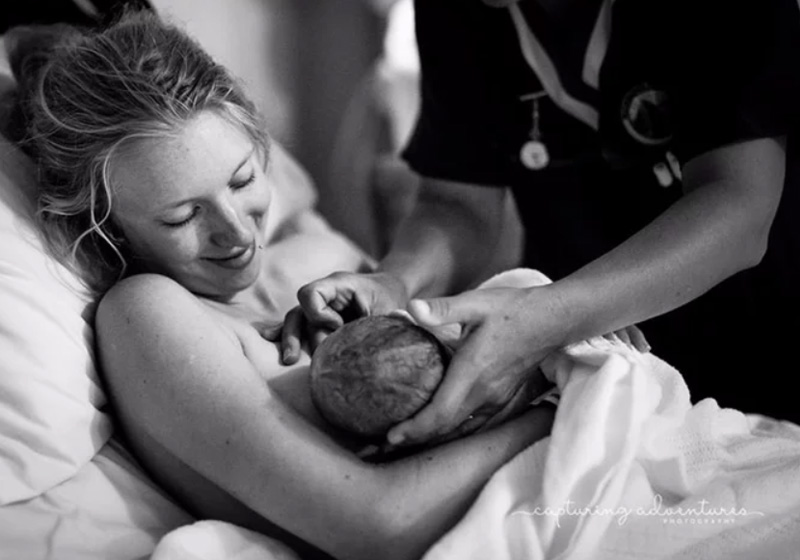
FIRST GOLDEN HOUR
A newborn has an innate ability to survive and thrive if his primal reflexes are allowed to kick in as a sequence during the birth. During a safe and supported birth within an empowering environment, the newborn often undergoes a quiet alert phase, which has been referred to as the first phase or simply the Breast Crawl.
When the newborn is placed skin to skin on the mother’s chest shortly after birth, the baby is able to move closer to and attach to the mother’s breast and initiate suckling. Studies show us that a baby’s alertness gradually decreases within 150 minutes after birth, when the baby usually becomes more drowsy and sleepy. This confirms the importance of the first golden hour being critical to allow integration of many sensory, motor and neuro-endocrine inputs to facilitate a Breast Crawl soon after birth. This helps mother and baby deeply bond in a natural, undisturbed way and maximise the opportunity for the baby to prime the milk receptors to stimulate and increase milk production.
During the Breast Crawl, babies use all their senses to explore that world of bonding with their mother. The smell of the dark area of the breasts or areola is similar to the amniotic fluid, which guides the movement. They use their eyes to look at the mother’s face, ears to hear her reassuring voice, while the touch becomes a primary source of forming connection.
The golden hour breastfeeding is also a boost to the mother’s ability to improve breastmilk production and helps counter the loss of blood during birth.
Dr Yatri Thacker is a Homeopathic wellness physician, Mental Health expert and founder- director of Baby & Me Programs, practising in Mumbai in the past 18 years.

Dr Yatri Thacker